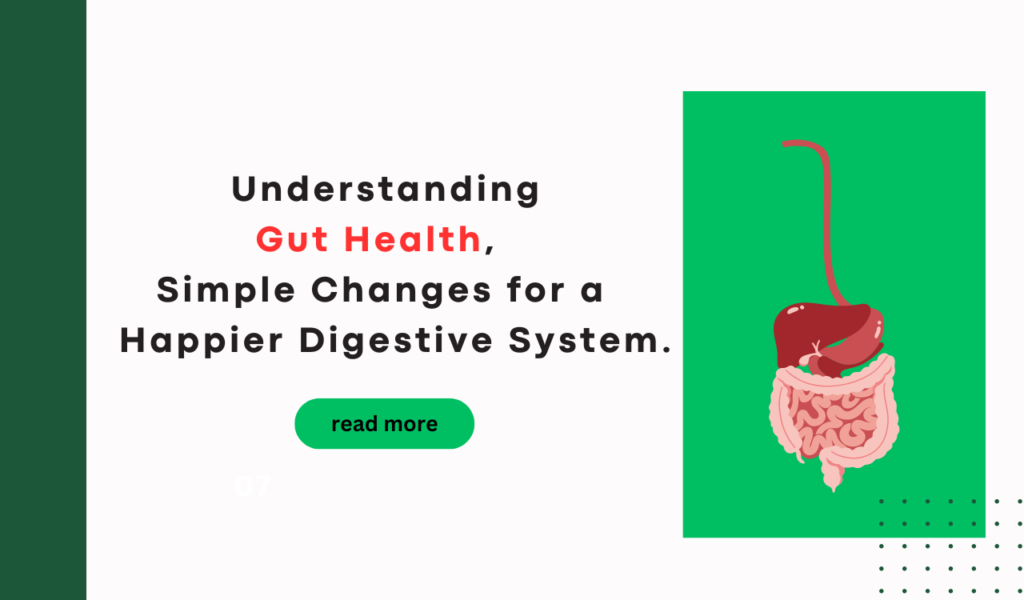Gut health is critical to overall well-being, as it affects digestion, nutrient immersion, and vulnerable function. A balanced gut microbiome supports effective digestion and can impact internal health and weight. An imbalance in gut bacteria can lead to problems like bloating, inflammation, and indeed habitual conditions. Maintaining a healthy gut through a varied diet, rich in fiber and probiotics, is important for optimal health and vibrance. Would you like to know how some foods or habits can affect gut health?
Gut health is deeply affected by our diet and life habits. Fiber-rich foods, analogous to fruits, vegetables, and whole grains, promote the growth of salutary intestinal bacteria and digestion. In distinction, a diet high in reused foods, sugars, and unhealthy fats can disrupt this balance, causing inflammation and heartburn Problems analogous to an imbalance of the microbiota arise. Numerous good habits also play an important part like regular exercise helps maintain healthy intestinal foliage. Acceptable hydration supports the intestinal mucosal filling and contributes to the immersion of nutrients. On the other hand, habitual stress and inadequate sleep contribute to intestinal health by changing the force and composition of the microbiota. It may hurt health. An unhealthy bowel can manifest itself through various symptoms, including patient digestive problems analogous to bloating, gas, and irregular bowel movements. individualities can also witness frequent fatigue, unexplained weight changes, or skin problems analogous to eczema and acne. Other symptoms, including food sectarianism or perceptivity, and indeed mood swings or internal fog, suggest that the gut microbiome or digestive system may be out of balance, injuring overall health and well-being.
The connection between gut health and IBS.
Gut health plays an important part in irritable bowel syndrome( IBS), as imbalances in the gut microbiome highlight digestive symptoms. A healthy gut microbiome helps regulate bowel movements and reduce inflammation, but abdominal pain from obstructions, bloating Symptoms of IBS analogous to flatulence, and abnormal bowel routine analogous to diet, stress, and antibiotics can alter the microbiome, affecting the strictness of IBS. Addressing these imbalances through salutary adaptations, probiotics, and life changes can help manage IBS symptoms and gut health.
The connection of gut health with overall health
Gut health acts as a central system for various body functions. The gut microbiome, a complex community of microorganisms abiding in the digestive tract, influences everything from immune system strength to internal health and nutrient absorption. A balanced microbiome supports effective digestion, helps regulate inflammation, and indeed impacts mood through the gut-brain axis. disruptions in gut health can lead to a range of issues, from digestive conditions to increased vulnerability to infections and internal health conditions. thus, maintaining a healthy gut is essential for holistic health, emphasizing the interconnectedness of our digestive system with broader aspects of well-being.
Positive particular goods of exertion on gut health.
Exercise has a profound positive effect on intestinal health, adding to both digestion and the diversity of the gut microbiota. Regular physical exertion accelerates the stir of food through the digestive part, which can prop constipation and overall bowel function. It also promotes the growth of salutary bacteria while reducing dangerous bacteria contributing to a more balanced microbiome. In addition, exercise regulates inflammation and supports the integrity of the intestinalsub-caste, permitting better immersion of nutrients. By incorporating harmonious exercise into your routine, you can promote healthier and further flexible intestine and gut health.
Simple salutary changes to ameliorate gut health.
Improving gut health is constantly achieved through simple salutary acclimations. Including further fiber-rich foods, such as fruits, vegetables, and whole grains, helps the growth of salutary intestinal bacteria, the addition of fermented foods such as yogurt, kefir, and curd can introduce probiotics. In addition, staying doused by drinking a lots of water aids digestion and nutrient immersion. Reducing the input of reused foods, fast foods, and high-sugar particulars can also inhibit the growth of dangerous bacteria and support overall gut health. Do small endless changes to overall gut health can have a significant impact on digestive well-being.
Life changes to better gut health.
Increased physical exertion like regular exercise can increase bowel movements promote the diversity of gut microbiota, and better overall digestive health.
Manage stress contemplation, deep breathing, or yoga can help reduce stress, which negatively affects gut function and microbiome balance.
Prioritize sleep, and aim for 7- 9 hours of quality sleep each night to support the body’s natural measures, including regulating intestinal health.
Drinking lots of water and staying doused helps to maintain proper digestion and nutrient absorption, which are vital for a healthy gut.
Use antibiotics only when necessary and as recommended, overuse of antibiotics can disrupt the balance of gut bacteria. Smoking and devilish alcohol consumption can damage the intestinal filling and microbiota, and far away digestive problems.
Eating sluggishly and smelling food well helps digestion and your body to exercise nutrients more.
Eating food at regular times helps regulate digestive processes and stabilizes the gut microbiome. A diet high in prebiotics, analogous to garlic, onions, and bananas, feeds salutary gut bacteria and maintains a healthy microbiome.
When to see a specialist if your gut health is poor?
If you are experiencing persistent gut health issues, such as chronic bloating, abdominal pain, bowel irregularity, or unexplained weight loss, it is important to consult a specialist. Additionally, if you experience blood in your stool, severe indigestion, or symptoms that significantly interfere with your daily life, seeking help from a gastroenterologist or registered dietitian can provide valuable insight and advice. May provide appropriate treatment options. Early intervention can prevent further complications and improve your overall health.



